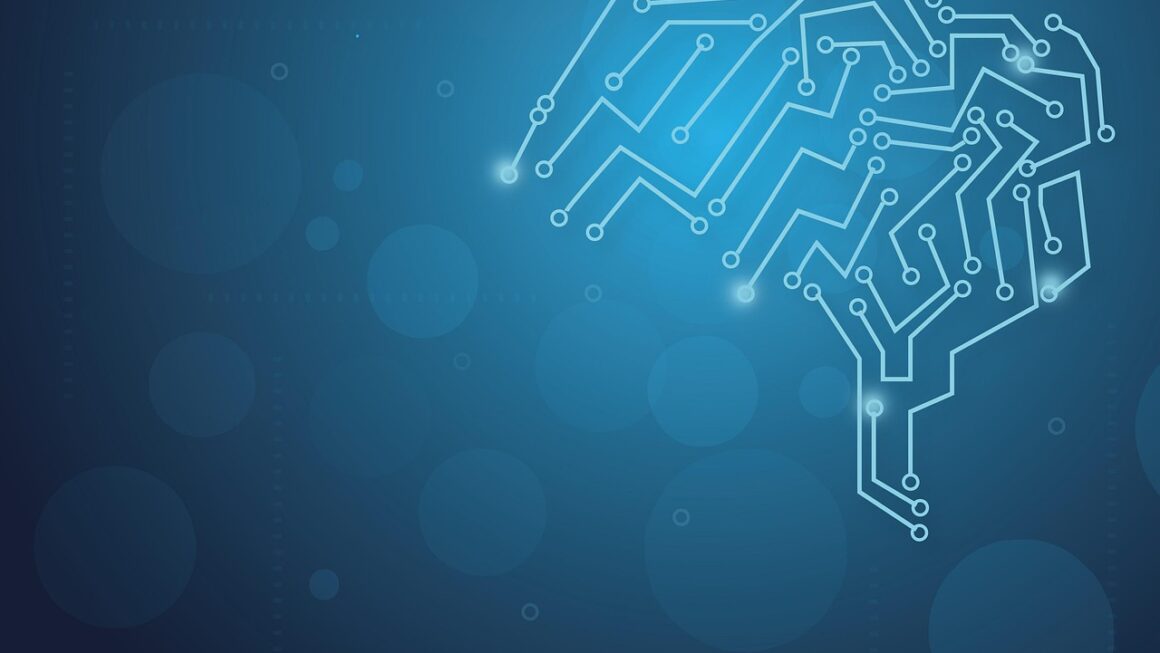The rise of Artificial Intelligence (AI) is no longer a futuristic concept; it’s a present-day reality transforming how we live and, perhaps more significantly, how we work. From automating mundane tasks to providing insightful data analysis, AI productivity tools are reshaping industries and empowering individuals to achieve more in less time. This article explores how AI can boost productivity, providing practical examples and strategies for integrating these powerful technologies into your daily workflow.
Understanding AI’s Impact on Productivity
The Core Benefits of AI Productivity Tools
AI productivity tools offer a myriad of advantages that can significantly impact individual and organizational performance. These benefits stem from AI’s ability to automate tasks, analyze large datasets, and provide personalized insights.
- Automation of Repetitive Tasks: AI excels at handling routine, rules-based tasks, freeing up human employees to focus on more complex and creative work. Examples include:
Automated email filtering and sorting.
Robotic Process Automation (RPA) for data entry and processing.
Scheduling tools that use AI to optimize meeting times.
- Enhanced Decision-Making: AI algorithms can analyze vast amounts of data to identify patterns and trends, providing valuable insights for better decision-making.
AI-powered business intelligence tools can predict market trends.
Healthcare AI can analyze patient data to assist in diagnosis.
Marketing AI can personalize customer experiences based on data analysis.
- Improved Time Management: By automating tasks and providing data-driven insights, AI helps individuals and teams optimize their time and prioritize effectively.
AI-powered to-do list apps can prioritize tasks based on urgency and importance.
Calendar management tools can intelligently schedule appointments and reminders.
- Increased Accuracy and Reduced Errors: AI systems are less prone to errors than humans, especially when performing repetitive tasks, leading to improved accuracy and quality of work.
AI-powered quality control systems in manufacturing.
Automated proofreading and grammar checking tools.
- Personalized Learning and Development: AI can tailor learning experiences to individual needs and preferences, enabling more effective training and development programs.
AI-powered learning platforms that adapt to individual learning styles.
Personalized training recommendations based on performance data.
Statistics Highlighting the Impact
Several studies demonstrate the tangible benefits of AI adoption on productivity. For example:
- A McKinsey Global Institute report estimates that AI could potentially automate activities accounting for up to 45 percent of the work people are paid to do.
- Research by Accenture suggests that AI could boost profitability by an average of 38 percent by 2035 and lead to an economic boost of $14 trillion.
- A survey by PwC found that 86% of executives say AI is becoming a “mainstream technology” at their company in 2021.
AI Tools for Enhanced Communication and Collaboration
Effective communication and collaboration are critical for productivity. AI offers numerous tools to streamline these processes.
AI-Powered Communication Platforms
AI is transforming communication platforms, making them more efficient and personalized.
- Smart Email Management: AI-powered email tools can prioritize important emails, filter out spam, and even suggest responses.
Example: Gmail’s Smart Compose and Smart Reply features.
- Intelligent Chatbots: Chatbots can handle routine customer inquiries, freeing up human agents to focus on more complex issues.
Example: Chatbots on e-commerce websites answering common questions about product availability and shipping.
- Real-time Translation: AI-powered translation tools can facilitate seamless communication between individuals who speak different languages.
Example: Google Translate integrated into video conferencing platforms.
- Meeting Transcription and Summarization: AI can automatically transcribe meetings and provide summaries, saving time and improving note-taking efficiency.
Example: Otter.ai and Fireflies.ai.
AI for Improved Collaboration
AI tools can also enhance collaboration within teams by facilitating better organization and information sharing.
- AI-Powered Project Management: Tools like Asana and Trello are integrating AI to help teams manage tasks, deadlines, and resources more effectively.
Example: AI-driven task prioritization and deadline prediction.
- Smart Document Management: AI can automatically categorize and organize documents, making it easier to find the information you need.
Example: Using AI to tag and categorize documents in a cloud storage system.
- Knowledge Management Systems: AI-powered knowledge management systems can extract insights from various sources and provide quick access to relevant information.
Example: Utilizing AI to create a searchable knowledge base for employees.
Leveraging AI for Content Creation and Marketing
AI is revolutionizing content creation and marketing, enabling businesses to produce high-quality content more efficiently and personalize their marketing efforts.
AI-Driven Content Creation
AI can assist with various aspects of content creation, from generating ideas to writing copy.
- AI-Powered Writing Assistants: Tools like Grammarly and ProWritingAid use AI to improve grammar, spelling, and style.
Example: Using Grammarly to proofread blog posts and marketing materials.
- Content Generation Tools: AI can generate content based on keywords and topics, helping to overcome writer’s block and create a variety of content formats.
Example: Using Jasper.ai to generate blog posts, social media updates, and email marketing copy.
- Image and Video Generation: AI can create images and videos from text prompts, enabling the production of visual content quickly and easily.
Example: Using DALL-E 2 or Midjourney to generate unique images for marketing campaigns.
AI-Enhanced Marketing Strategies
AI can personalize marketing campaigns, analyze customer data, and automate various marketing tasks.
- Personalized Marketing: AI can analyze customer data to create personalized marketing messages that resonate with individual customers.
Example: Sending targeted email campaigns based on customer purchase history and browsing behavior.
- Predictive Analytics: AI can predict customer behavior, enabling marketers to optimize their campaigns for maximum impact.
Example: Using AI to predict which customers are most likely to make a purchase.
- Automated Social Media Management: AI can schedule social media posts, monitor brand mentions, and engage with followers.
Example: Using Buffer or Hootsuite to automate social media marketing tasks.
- SEO Optimization: AI can analyze search engine data to identify keywords and optimize content for better search engine rankings.
Example: Using Surfer SEO or SEMrush to optimize website content for relevant keywords.
Implementing AI: Best Practices and Considerations
While AI offers significant productivity gains, successful implementation requires careful planning and consideration.
Data Privacy and Security
Protecting data privacy and security is paramount when implementing AI solutions.
- Ensure compliance with data privacy regulations (e.g., GDPR, CCPA).
- Implement robust security measures to protect data from unauthorized access.
- Use anonymization and pseudonymization techniques to protect sensitive data.
- Establish clear data governance policies and procedures.
Training and Education
Effective AI implementation requires adequate training and education for employees.
- Provide training on how to use AI tools effectively.
- Educate employees about the benefits of AI and how it can improve their work.
- Offer ongoing support and resources to help employees adapt to new technologies.
- Foster a culture of continuous learning and experimentation.
Choosing the Right AI Tools
Selecting the right AI tools is crucial for achieving desired productivity gains.
- Identify specific pain points and challenges that AI can address.
- Evaluate different AI tools based on their features, functionality, and cost.
- Consider the integration capabilities of AI tools with existing systems.
- Start with pilot projects to test and refine AI solutions.
Ethical Considerations
Addressing ethical considerations is essential for responsible AI implementation.
- Ensure fairness and avoid bias in AI algorithms.
- Be transparent about how AI is being used.
- Address potential job displacement concerns.
- Promote responsible AI development and deployment.
Conclusion
AI productivity tools are revolutionizing how we work, offering unprecedented opportunities to automate tasks, enhance decision-making, and improve communication and collaboration. By understanding the benefits of AI, implementing best practices, and addressing ethical considerations, individuals and organizations can leverage AI to unlock significant productivity gains and achieve greater success. The future of work is undoubtedly intertwined with AI, and those who embrace this technology will be best positioned to thrive in the evolving landscape.




